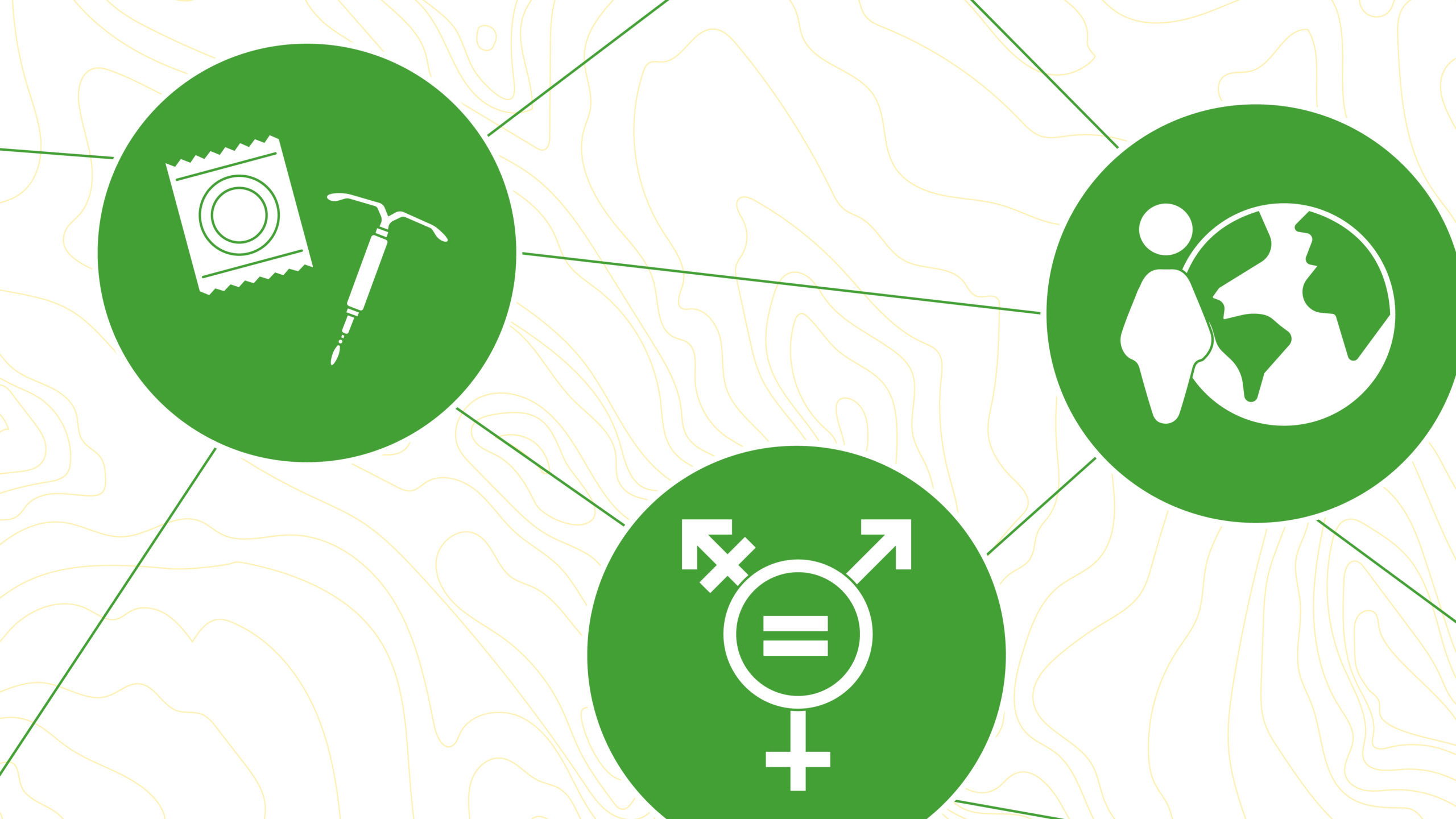OVERVIEW
Women Deliver is thrilled to publish two new reports that explore the inextricable linkages between climate change, gender equality, and sexual and reproductive health and rights (SRHR) and propose recommendations for decision-makers.
The first report, The Link Between Climate Change and Sexual and Reproductive Health and Rights: An Evidence Review, is designed to be used by decision-makers and climate change, humanitarian, and gender equality advocates to better understand the linkages between sectors and align efforts to generate effective policies and programs.
The second report, Sexual and Reproductive Health and Rights in National Adaptation Plan (NAP) Processes, developed in partnership with the International Institute for Sustainable Development, an award-winning independent think tank and secretariat to the NAP Global Network, provides an overview of how SRHR can be integrated into national plans to adapt to climate change.
Realizing SRHR is essential for girls, women, and underrepresented populations to be able to exercise their agency and to make choices about their bodies and their lives – essential elements of gender equality. Growing evidence shows that:
- The impacts of climate change have a detrimental effect on an individual’s SRHR.
- Climate action efforts may indirectly and directly impact SRHR, but more evidence is needed.
- Building a sustainable future for all requires the full potential — and participation — of girls and women in environmental and climate action, and the realization of that potential depends on their health and rights.
- The impact on girls and women, people of underrepresented sexual orientation, gender identity, and/or expression, and sex characteristics (SOGIESC), and those who experience multiple and intersecting forms of discrimination and oppression must be particularly prioritized.
Take Gender-Responsive Climate Action
Until now, the linkages between climate change and SRHR have received little attention. Recognizing these links is key to sustainably adapting to climate change while also improving gender equality and access to SRHR services. Together, the two reports highlight 11 findings and make 14 recommendations to decision-makers and advocates to generate effective, rights-based policies and programs across sectors, including:
- Enhancing collaboration between actors working on climate change, health, and women’s rights.
- Promoting gender-transformative climate action that addresses the linkages between climate change and SRHR.
- Investing in research to fill evidence gaps and integrate the analysis of SRHR and climate data.
- Supporting health systems to address the underlying causes of vulnerability to climate change.
- Understanding how compounding crises and intersecting identities shape vulnerability and resilience to climate change and SRHR to make sure climate actions do not exacerbate inequalities.
Read the Press Release:
To learn more about our research partnership with the International Institute for Sustainable Development (IISD) and NAP Global Network, read the press release here.
Share on Social Media:
Help us spread the word about the linkages between SRHR and climate action by posting the messages and graphics from our social media toolkit.
